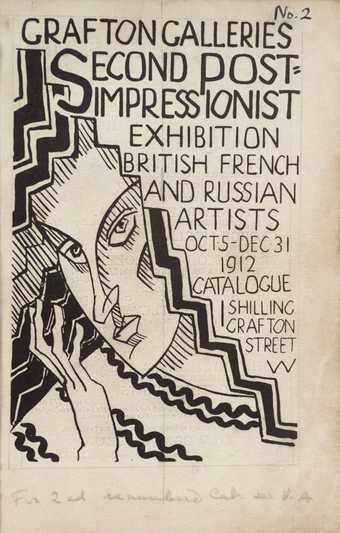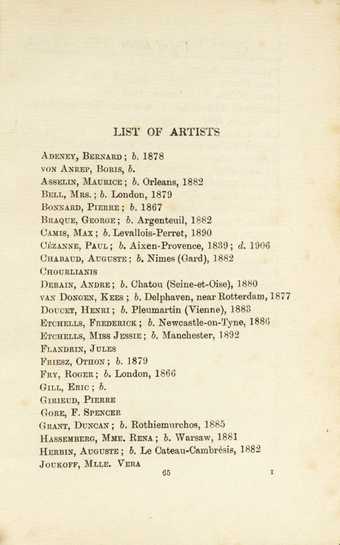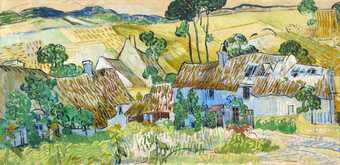
Exhibition Catalogue 'Second Post-Impressionist Exhibition', Grafton Galleries, London

Exhibition Catalogue 'Second Post-Impressionist Exhibition', list of artists
The term is usually confined to the four major figures who developed and extended impressionism in distinctly different directions – Paul Cezanne, Paul Gauguin, Georges Seurat and Vincent van Gogh.
Cézanne retained the fundamental doctrine of painting from nature but with added rigour, famously saying ‘I want to re-do Poussin from nature’. (Poussin being a notoriously intellectual pioneer of French landscape). Seurat put impressionist painting of light and colour on a scientific basis (neo-Impressionism, divisionism). Gauguin retained intense light and colour but rejected painting from nature and reintroduced imaginative subject matter. Van Gogh painted from nature but developed highly personal use of colour and brushwork directly expressing emotional response to subject and his inner world.
Post-impressionism as a term was first used by British artist and art critic Roger Fry in 1910 when he organized the 1910 exhibition Manet and the Post-Impressionists.


